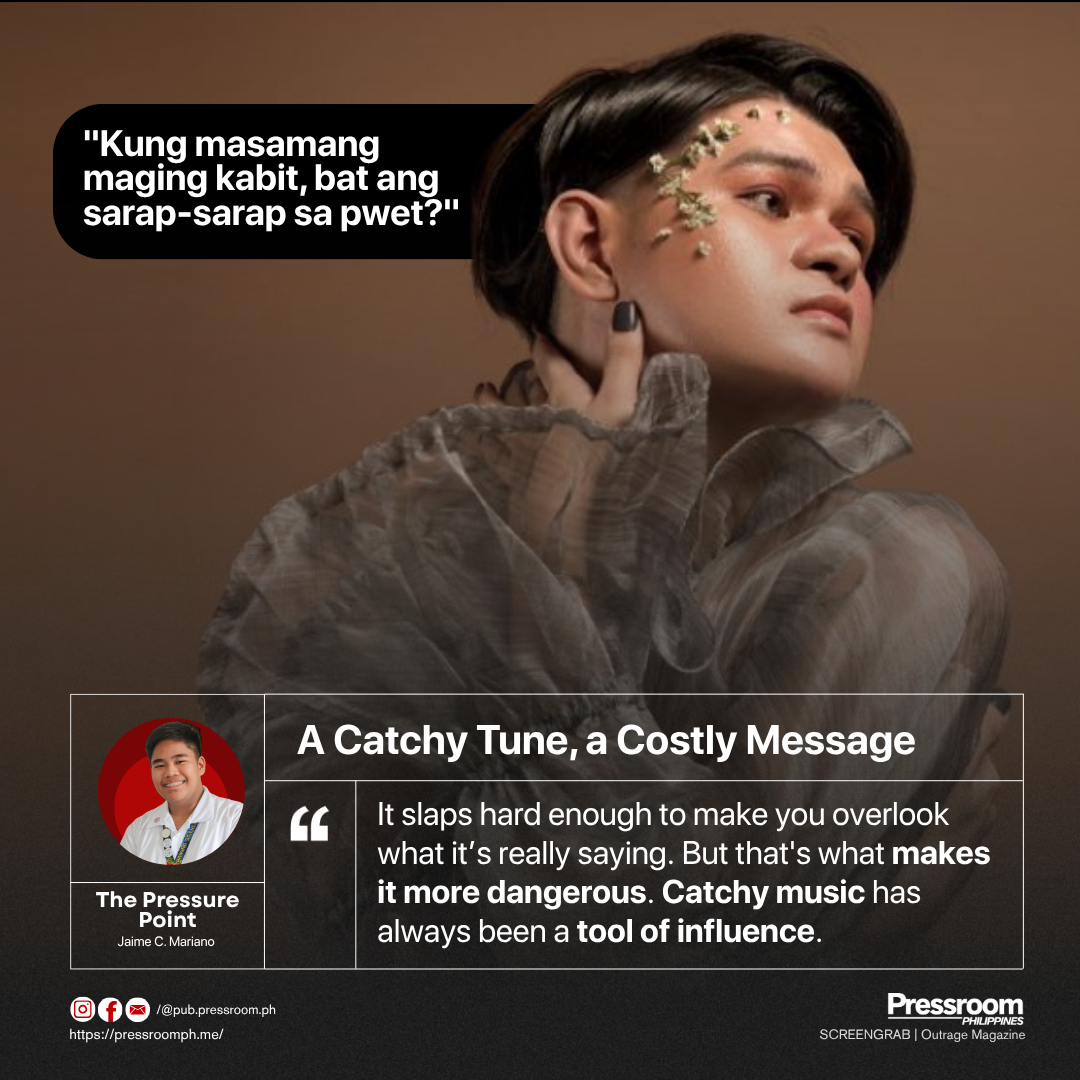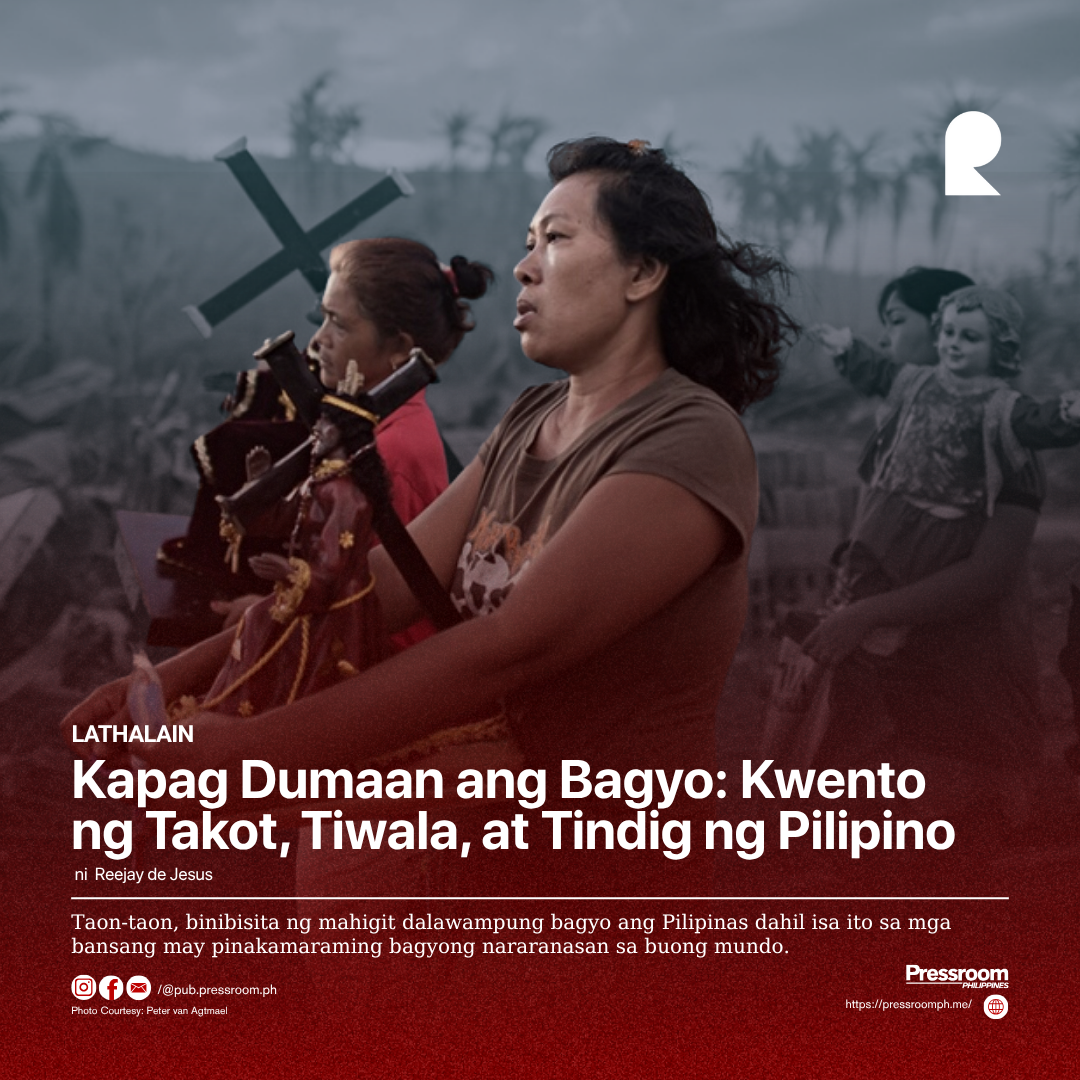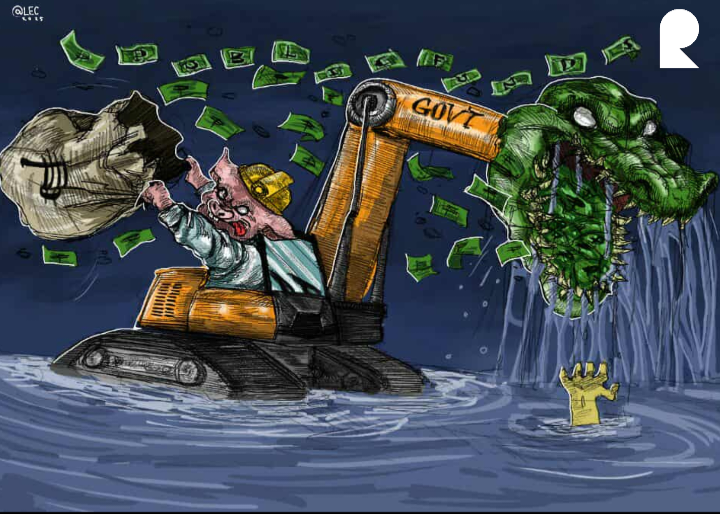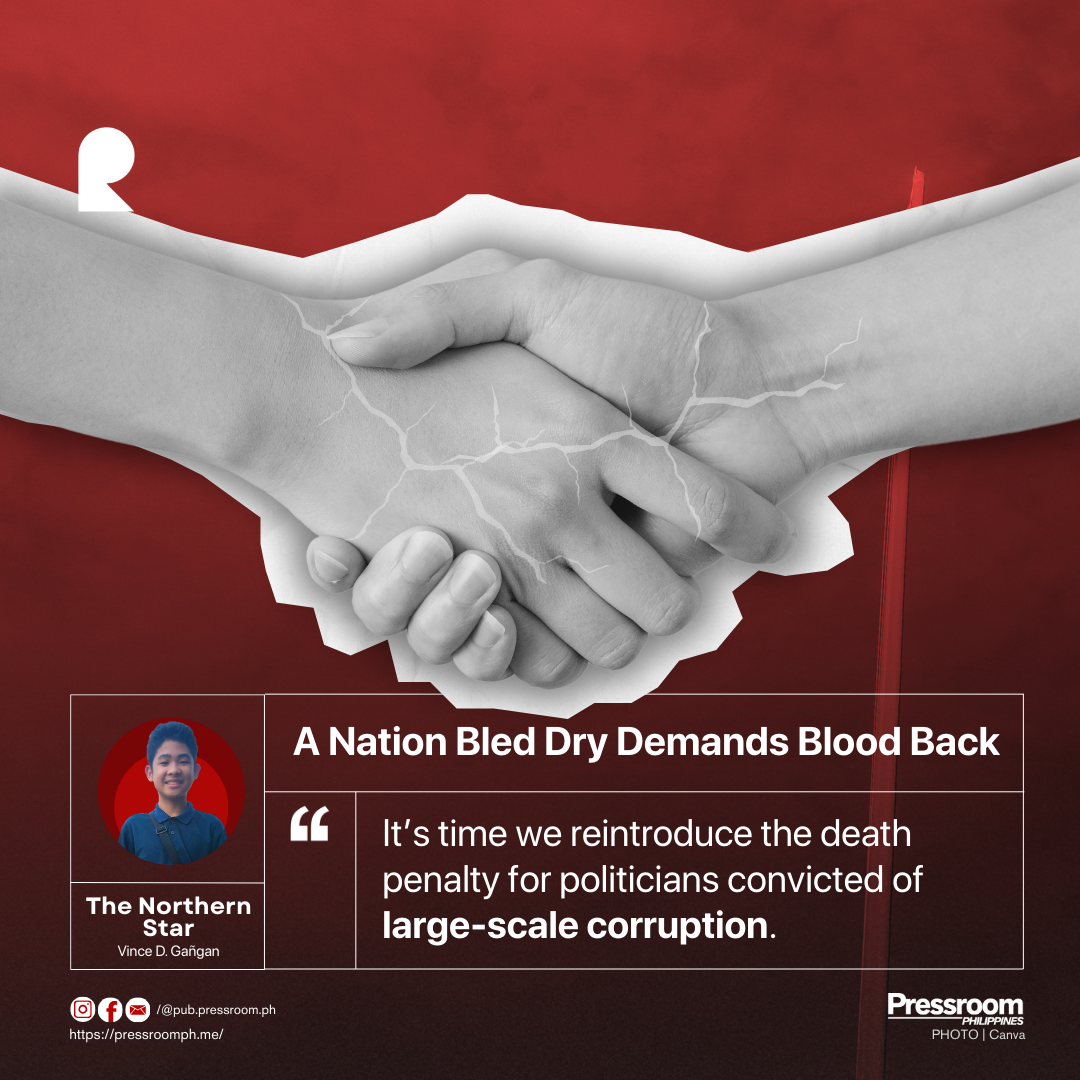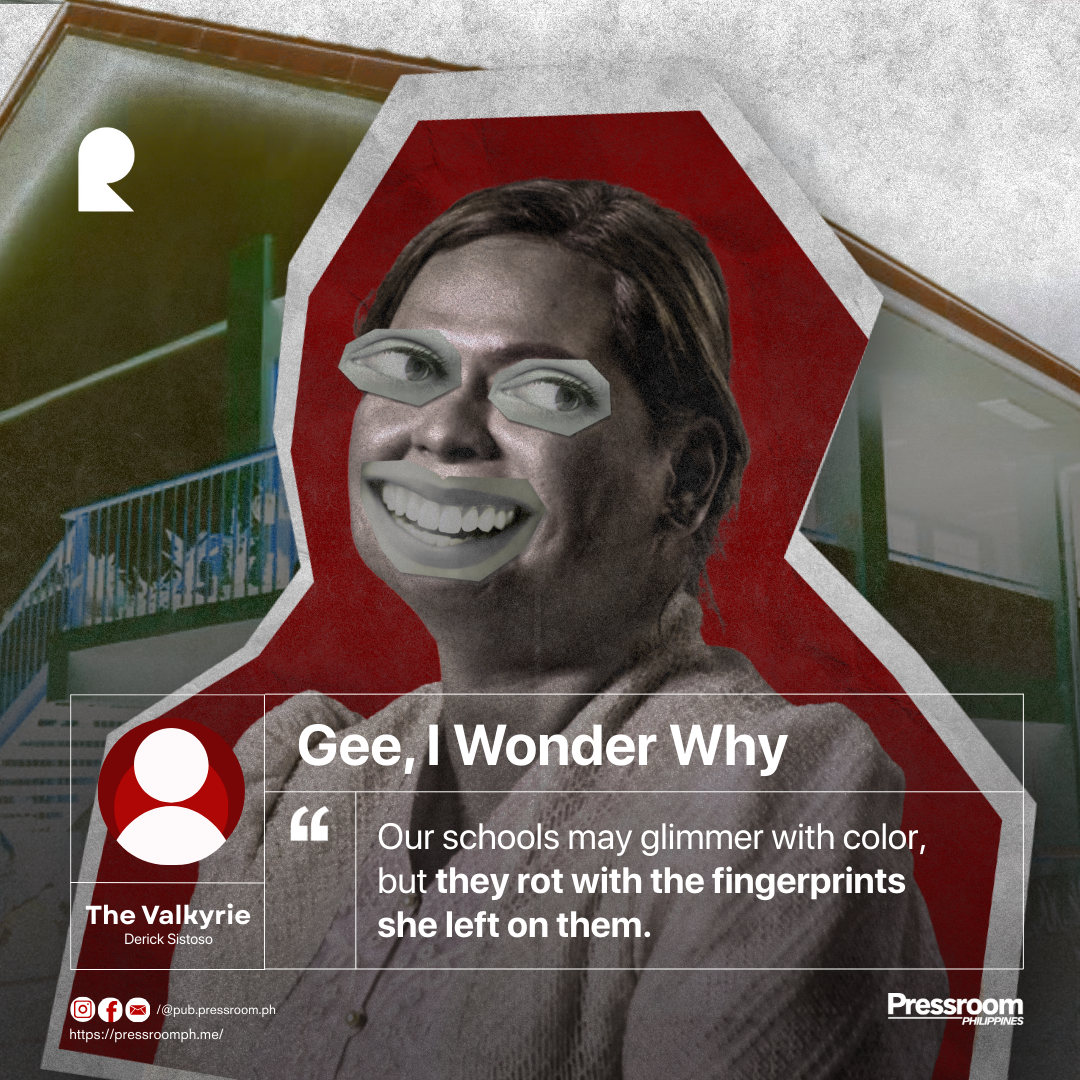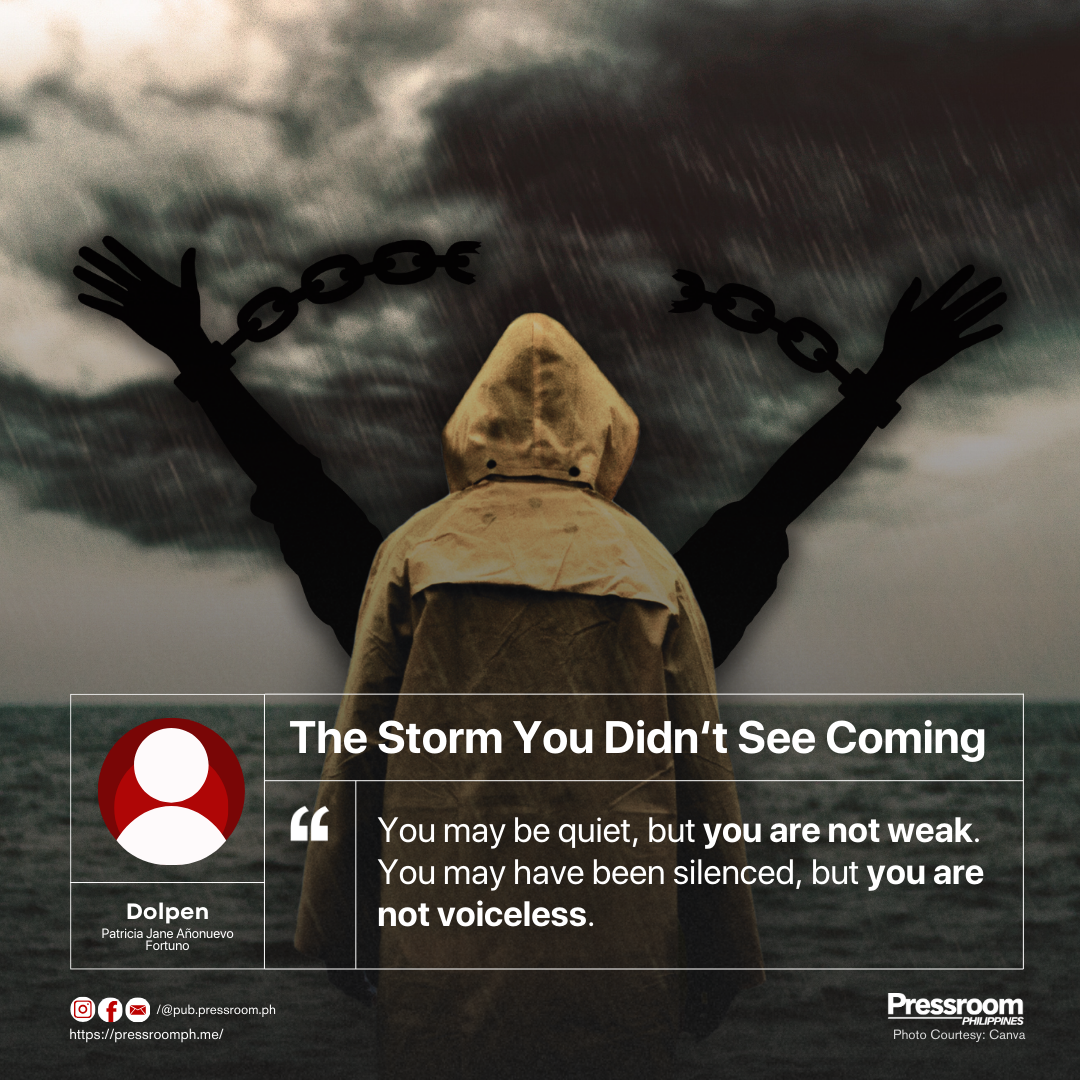"Kung masamang maging kabit, bat ang sarap-sarap sa pwet?"
Those were the lyrics that rang through the air at the Pride March, performed by Filipino artist Dom Guyot. A bold line. A provocative line. A line that has since stuck in my head for all the wrong reasons.
Let me be upfront: I don’t know Dom Guyot personally. I’d never heard of them before this event. I had no preconceived opinions about their music or artistry. What I saw was someone performing for a massive Pride crowd—an audience made up of people who have fought, and continue to fight, for visibility, justice, and equality. That was my first impression. And it left me uneasy.
Let’s get one thing straight: Pride is both a protest and a celebration. It's where we honor our history: Stonewall, the HIV/AIDS crisis, the long fight for legal protections. It's also where we revel in the joy of existing despite everything that tells us not to. We dance in the streets not because we’ve “won,” but because we’re still here. That said, representation in this space matters. And representation at Pride? It carries weight.
So when someone gets up on stage during Pride and sings about infidelity in a way that turns a taboo into a punchline, it doesn’t exist in a vacuum. It contributes to a harmful narrative that has long plagued queer communities: that we are inherently promiscuous, morally deviant, and relationship-destroying. These are the same stereotypes used to deny us rights, to frame us as threats to “traditional” families, and to justify exclusion.
The truth is, queer people are already hypersexualized in the public eye. We’re rarely allowed complexity. We are boxed into roles—the sassy best friend, the scandalous mistress, the comic relief. So, when we have the rare opportunity to perform for our own, on our own terms, why reinforce the very tropes used to dehumanize us?
Let’s not pretend the song wasn’t catchy. It was. That’s the point. It slaps hard enough to make you overlook what it’s really saying. But that's what makes it more dangerous. Catchy music has always been a tool of influence. It’s why jingles work, why anthems inspire movements, and why protest songs are passed down through generations. So yes, "Kabit" is a bop. But it’s also a smokescreen. Behind the beat is a message that, whether intended or not, trivializes cheating, glamorizes being the “other,” and turns a painful reality into a punchline.
Some might say, “It’s just a song.” Or, “Don’t take it too seriously.” But marginalized communities don’t always have the luxury of being casual. Everything we do is scrutinized, politicized, and sensationalized. And when we step into the spotlight, especially on a Pride stage, we carry more than ourselves—we carry a community.
This isn’t about canceling Dom Guyot. This isn’t about gatekeeping artistic expression. But it is about accountability. It’s about artists recognizing the responsibility that comes with a platform, especially when that platform is hard-earned and hard-fought for. Pride is more than just a gig. It’s a legacy.
To every queer artist, performer, and influencer out there: please understand the power you hold. In a world that still sees queerness as something to fear, fetishize, or erase, what you put out there matters. You can be sexy, funny, fierce, and bold without selling your community short.
So if you’re going to stand in front of a crowd waving rainbow flags, chanting “Love is love,” and celebrating our existence—please, don’t throw us under the bus for a viral moment.
You have the mic. Use it wisely.
